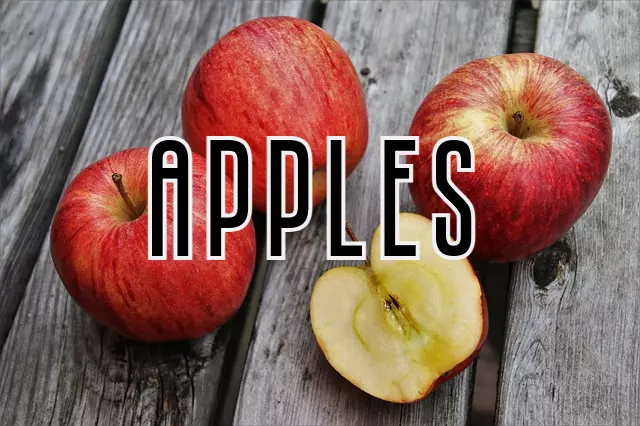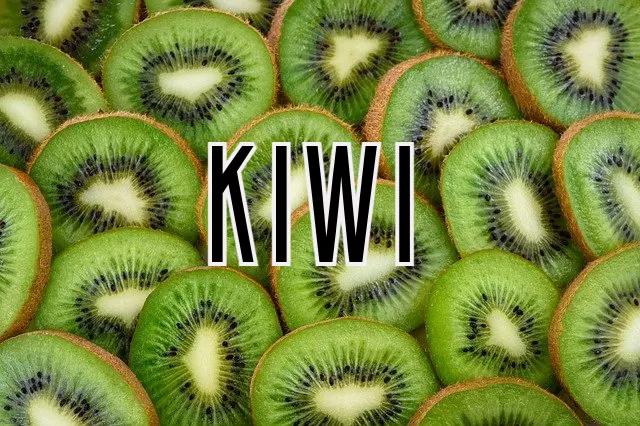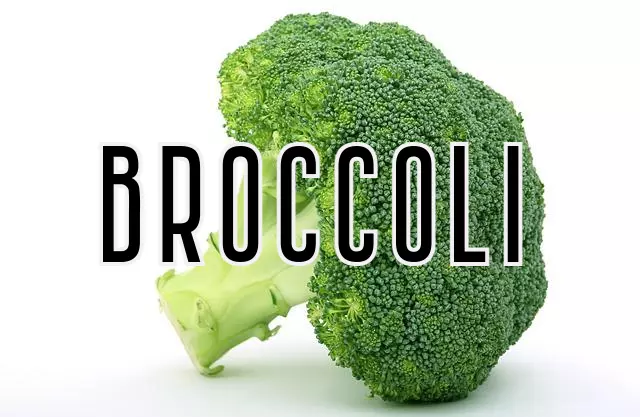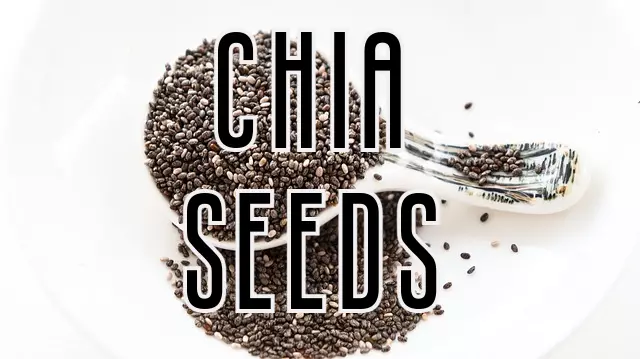Constipation and problems with defecation can have different causes, but you can often soften the feces with proper nutrition. Foods and beverages that are able to soften the stool and improve bowel function a lot. Below is a list of foods that will soften your stool and you will be able to choose the ones that best for you.
Stool softener foods can help avoid straining and promote recovery from common rectal issues (e.g. hemorrhoids, cracks and rectal prolapse).
In short, I recommend that you:
- once a week to drink brewed senna leaves (0.5 – 0.7 tablespoons of leaves pour boiling water and infuse for 20 minutes);
- often (3-4 times a week) eat yogurt;
- Eat a lot of fruit and vegetable salads;
- drink enough fluids.
- For a person with normal bowel function, this is more than enough to make his stool soften so much that he will go to the toilet almost every day.
- In other cases, it makes sense to add supplements to your diet to help make your stools softer and more frequent.
Reyus Mammadli,
iythealth.com owner, healthcare advisor
Prunes

Dried plums, called prunes, are extensively used as a natural remedy for constipation. They include high amounts of fiber, with 2 grams of fiber per 1-ounce (28-gram) serving, or about three prunes. This is 8% of the American Heart Association’s suggested daily consumption of fiber. The insoluble fiber in prunes, known as cellulose, increases the amount of water in the stool, which adds bulk. On the other hand, the soluble fiber in prunes is fermented in the colon to produce short-chain fatty acids, which likewise increase stool weight. In addition, prunes consist of sorbitol. It triggering water to be pulled into the colon and causing a laxative effect in a little number of people. Lastly, prunes likewise include phenolic compounds that promote beneficial gut bacteria. This has been hypothesized to contribute to their laxative effect.
One study in 40 individuals with constipation found that consuming 100 grams of prunes daily significantly improved stool frequency and consistency, compared to treatment with psyllium, a kind of dietary fiber.
Apples

Apples are rich in fiber. In truth, one medium-sized apple with the skin on (about 182 grams) includes 4.4 grams of fiber, which is 17% of the suggested everyday consumption. Roughly 2.8 grams of that fiber is insoluble, while 1.2 grams is soluble fiber, primarily in the form of the dietary fiber called pectin. In the gut, pectin is rapidly fermented by bacteria to form short-chain fatty acids, which pull water into the colon, softening the stool and decreasing gut transit time.
One study in 80 people with constipation discovered that pectin can accelerate the movement of the stool through the intestinal tracts, enhance symptoms of constipation and increase the number of beneficial bacteria in the gut. Another study found that rats fed a diet of apple fiber had increased stool frequency and weight, in spite of being offered morphine, which triggers constipation.
Pears
Pears are another fruit rich in fiber, with about 5.5 grams of fiber in a medium-sized fruit (about 178 grams). That is 22% of the suggested daily fiber consumption. Together with the fiber benefits, pears are particularly high in fructose and sorbitol, compared to other fruits. Fructose is a type of sugar that is badly absorbed in some individuals. This indicates that a few of it winds up in the colon, where it draws in water by osmosis, stimulating a bowel movement. Pears also consist of the sugar alcohol sorbitol. Like fructose, sorbitol is not well soaked up in the body and acts as a natural laxative by bringing water into the intestines.
Kiwifruit

You can get about 2.3 grams of fiber per kiwifruit (about 76 grams), which is 9% of the recommended daily consumption. In one research study, 38 people over age 60 were offered one kiwifruit per 66 pounds (30 kg) of body weight per day. This led to an increased frequency and ease of defecation. It likewise softened and increased the bulk of stools. Another study in people with constipation found that consuming 2 kiwifruits daily for four weeks resulted in more spontaneous defecation, a reduction in laxative usage and in general increased complete satisfaction with bowel habits. Furthermore, a third research study gave 54 individuals with irritable bowel syndrome 2 kiwifruits per day for 4 weeks. At the end of the research study, participants reported increased frequency of defecation and faster colonic transit times. It’s not simply the fiber in kiwifruit that’s believed to fight constipation. An enzyme known as actinidain is likewise hypothesized to be responsible for kiwifruit’s favorable effects on gut motility and bowel habits.
Figs
Figs are a great way to enhance your fiber consumption and promote healthy bowel habits. One medium-sized raw fig (about 50 grams) includes 1.6 grams of fiber. Furthermore, just half a cup (75 grams) of dried figs includes 7.3 grams of fiber, which is almost 30% of your everyday requirements. A research study in dogs examined the impacts of fig paste on constipation over a three-week period. It found that fig paste increased stool weight and decreased digestive tract transit time. Another research study in 40 people with constipation discovered that taking 10.6 ounces (300 grams) of fig paste per day for 16 weeks helped speed up colonic transit, improved stool consistency and reduced stomach pain. Interestingly, figs contain an enzyme called ficain, which resembles the enzyme actinidain found in kiwifruit. It is thought this may add to its favorable results on bowel function, alongside its high fiber content.
Citrus Fruits
Citrus fruits like oranges, grapefruits and mandarins are a rejuvenating snack and a good source of fiber. For instance, one orange (about 131 grams) consists of 3.1 grams of fiber, which is 13% of the suggested day-to-day fiber consumption. Meanwhile, one grapefruit (about 236 grams) contains 2.6 grams of fiber, conference 10% of your daily requirements. Citrus fruits are likewise rich in the soluble fiber pectin, specifically in the peel. Pectin can accelerate colonic transit time and reduce constipation. In addition, citrus fruits consist of a flavanol called naringenin, which may contribute to the positive impacts of citrus fruits on constipation. It’s best to eat citrus fruits fresh to make sure you get the maximum quantity of fiber and vitamin C. Oranges and mandarins are an useful snack food, and grapefruit goes well in a salad or cut in half for breakfast.
Spinach, Broccoli and Other Greens

Greens such as spinach, Brussels sprouts and broccoli are not only rich in fiber but also great sources of vitamin C, vitamin K and folate. These greens help add bulk and weight to stools, that makes them easier to go through the gut. One cup of prepared spinach consists of 4.3 grams of fiber, or 17% of your recommended everyday consumption. To get spinach into your diet, try adding it to a quiche, pie or soup. Baby spinach or tender greens can be included raw to salads or sandwiches for a fiber boost. Though they’re unpopular with some, Brussels sprouts are very healthy, and lots of people discover them tasty. Simply five sprouts consist of 10% of your day-to-day fiber needs for only 36 calories. They can be boiled, steamed, grilled or roasted and are good hot or cold.
Broccoli includes 3.6 grams of fiber in just one stalk (about 150 grams). This is comparable to 16% of your advised everyday fiber intake. It can be prepared and added into soups and stews, as well as eaten raw in salads or as a snack.
Jerusalem Artichoke and Chicory
Jerusalem artichoke and chicory come from the sunflower family and are very important sources of a type of soluble fiber referred to as inulin. Inulin is a prebiotic, which means it helps stimulate the growth of bacteria in the gut, promoting digestion health. It’s particularly useful for Bifidobacteria. A review of research study on inulin and constipation found that inulin increases stool frequency, enhances consistency and decreases gut transit time. It likewise has a moderate bulking impact by increasing the bacterial mass in the stool. A current research study in 44 healthy adults with constipation found that taking 0.4 ounces (12 grams) of inulin from chicory daily increased stool frequency and softness.
Artichoke
Scientific research study reveals that artichokes have a prebiotic result, promoting good gut health and regularity. Prebiotics are indigestible carbohydrates like inulin that feed the helpful bacteria in the gut, increasing their numbers and protecting versus the growth of hazardous bacteria. One research study found that individuals who ate 10 grams of fiber drawn out from artichokes every day for three weeks had higher numbers of useful Bifidobacteria and Lactobacilli bacteria. It also discovered that levels of damaging bacteria in the gut reduced. In addition, prebiotics have been discovered to increase stool frequency and improve stool consistency in individuals with constipation.
Senna (Rhubarb)

According to our experience, Senna (Rhubarb) is the best natural stool softener.
iythealth.com
Rhubarb is a leafy plant that is popular for its bowel-stimulating properties. It includes a substance referred to as sennoside A, more commonly known as Senna, a popular herbal laxative. A study in rats found that sennoside A from rhubarb works by decreasing levels of aquaporin 3, a protein that regulates the movement of water in the intestinal tracts. A lower level of aquaporin 3 suggests less water is moved from the colon back into the blood stream, leaving stools softer and promoting defecation. Additionally, 1 cup (122 grams) of rhubarb contains 2.2 grams of dietary fiber, which supplies 9% of your recommended day-to-day fiber consumption.
Sweet Potato
Sweet potatoes include a good quantity of fiber to assist relieve constipation. One medium-sized sweet potato (about 114 grams) consists of 3.8 grams of fiber, which is 15% of the suggested everyday consumption. Sweet potatoes contain mostly insoluble fiber in the type of cellulose and lignin. They likewise consist of the soluble fiber pectin. Insoluble fiber can help bowel movements by including bulk and weight to stools. One research study looked at the impacts of consuming sweet potato on individuals going through chemotherapy. After just 4 days of consuming 200 grams of sweet potato each day, individuals experienced improved symptoms of constipation and reported less straining and pain, compared to the control group.
Beans, Peas and Lentils
Beans, peas and lentils are also known as pulses, one of the cheapest, fiber-packed food groups you can consist of in your diet. For instance, 1 cup (182 grams) of prepared navy beans, the type used for baked beans, contains a tremendous 19.1 grams of fiber, which is nearly 80% of the suggested day-to-day intake. Furthermore, in simply one-half cup (99 grams) of cooked lentils, there are 7.8 grams of fiber, meeting 31% of your daily needs. Pulses consist of a mix of both insoluble and soluble fiber. This implies they can alleviate constipation by adding bulk and weight to stools, along with soften them to help with passage. To consist of more pulses in your diet, try adding them to soups, blending them to make healthy dips, including them in salads or adding them into ground-meat dishes for extra bulk and taste.
Chia Seeds

Chia seeds are among the most fiber-dense foods readily available. Simply 1 ounce (28 grams) of chia seeds includes 10.6 grams of fiber, conference 42% of your everyday requirements. The fiber in chia is comprised of 85% insoluble fiber and 15% soluble. When chia enters contact with water, it forms a gel. In the gut this can assist soften stools and make them much easier to pass. What’s more, chia can take in approximately 12 times its own weight in water, which can assist include bulk and weight to stools.
Flaxseeds
Flaxseeds have actually been utilized for centuries as a conventional solution for constipation, thanks to their natural laxative impacts. In addition to many other health benefits, flaxseeds are rich in both soluble and insoluble dietary fiber, making them an ideal digestion aid. Just 1 tablespoon (10 grams) of entire flaxseeds contains 2.8 grams of fiber, meeting 11% of your day-to-day needs. One research study in mice found that those fed a flaxseed -supplemented diet had shortened small intestinal transit time and increased stool frequency and stool weight. The researchers suggested that insoluble fiber acts like a sponge in the large intestinal tract, retaining water, increasing bulk and softening the stool. On the other hand, the soluble fiber promotes bacterial growth, including mass to the stool.
Whole-Grain Rye Bread

Rye bread is a conventional bread in lots of parts of Europe and rich in dietary fiber. Two slices (about 62 grams) of whole-grain rye bread contain 4 grams of dietary fiber, fulfilling 15% of your daily requirements. Some brands include much more than this. Research study has actually discovered rye bread to be more efficient at easing constipation than routine wheat bread or laxatives. One research study in 51 adults with constipation investigated the results of eating 8.5 ounces (240 grams) of rye bread each day. Individuals who ate rye bread showed a 23% reduction in intestinal tract transit times, on average, compared to those who ate wheat bread. They likewise experienced softened stools and increased frequency and ease of defecation.
Oat Bran
Oat bran is the fiber-rich external casing of the oat grain. It has considerably more fiber than the frequently utilized quick oats. In one-third cup (31 grams) of oat bran, there are 4.8 grams of fiber, compared to 2.7 grams in fast oats. 2 research studies have actually revealed the positive impacts of oat bran on bowel function. First, a research study from the UK revealed that eating 2 oat-bran biscuits each day considerably enhanced the frequency and consistency of defecation and minimized pain in individuals aged 60-80.
A various study in nursing home locals in Austria found that including 7-8 grams of oat bran to the diet daily led to a substantial reduction in laxative use. Oat bran can easily be integrated with granola mixes and baked into bread or muffins.
Kefir
Kefir is a fermented milk beverage that came from the Caucasus mountains in West Asia. The word kefir is obtained from a Turkish word significance “pleasant taste”. It is a probiotic, which indicates it consists of bacteria and yeasts that benefit your health when ingested. Kefir contains different species of microorganisms, depending upon the source.
One four-week research study had participants consume 17 ounces (500 ml) of kefir daily after their morning and night meals. At the end of the research study, participants utilized fewer laxatives and experienced enhancements in stool frequency and consistency.
Blueberries and Strawberries

Your preferred jam ingredients contain a very important element of bowel health, which is pectin. This is a kind of soluble fiber that makes those prepared foods gel up as they cool.
Raisins
In addition to prunes, grandmother must have prescribed raisins. This snack includes stool-softening magnesium and fiber– and many people believe raisins taste much better than prunes, too. Figs, also a good source of fiber, are another good option for anyone looking for natural laxatives.
Pumpkin
This low-carb, low-sugar wonder is packed with fiber, crucial to constipation relief. Pumpkin also has potassium, a mineral that functions as an electrolyte to keep the digestive tract balanced.
Coffee

Caffeine-containing drinks have a laxative potential. More than 2 or three cups of coffee daily can typically trigger softer stool or even diarrhea. Aside from promoting bowel movements, coffee can also trigger looser stools since increased peristalsis leaves less time for the colon to perform one of its crucial functions — reabsorbing water from fecal matter to produce well-formed stools.
Q&A Related Human Stool Softening Products
How do I soften my stool quickly?
The main problem with hard stools is improper nutrition and / or disorders of the gastrointestinal tract. Therefore, pills or hard stool softeners, like Senna, will help to quickly soften the stool that causes the urge to go to the toilet. We recommend that you pour 1 tablespoon of Senna leaves 150-200 ml of boiling water and cover the glass. After 20-25 minutes, drain the broth through a strainer and drink. To improve the taste, you can add lemon juice, put a candy in your mouth.
If you turn to medications, we recommend the following options:
[azonpress template=”grid” columns=”3″ asin=”B00BISGJXA,B00007MII1,B000GCI8QK”]
Do bananas soften your stool?
Bananas are a source of fiber, and generally help soften stools. However, if your diet provokes the hardening of the stool in the intestines, then you will not be able to solve the problem with bananas alone. But, like other vegetables and fruits-they help normal excretion of feces from the body.
What can I eat to make my stool softer?
Drink more water, eat more fresh fruits and vegetables, choose black bread instead of white, eat yogurt more often and drink milk. And, if you have frequent constipation, once a week prepare Senna tea as a laxative. Over time, you can drink it once every 2-3 weeks. The recipe we have given above.
What drinks help with constipation?
The softness of a stool depends very much on the amount of liquid consumed. If the liquid is sufficiently released from the intestinal walls, the stool becomes softer and there are fewer reasons for constipation. Therefore, we recommend drinking regular water more than you have previously (increase the amount of drinking by 30-40 ounces per day). Also drink natural juices, green tea and coffee (but no more than 2 cups per day). Milk and yogurt are also excellent at fighting constipation.
Does hot water with lemon juice help constipation?
The citric acid, a natural laxative, present in lemon battles the contaminants in your gastrointestinal track. Lemon juice acts as stimulant and eliminates the toxins from the body offering fast relief. So you can use hot (or better, warm) water with lemon squeezed into it to prevent constipation.
What is the most effective stool softener?
In the article, we have already indicated that the best natural remedy for softening the stool is Senna (decoction of leaves). If you want to buy a medicinal food Supplement that will solve your problem with constipation, then, in addition to what we recommended above, we also recommend Miralax.
[azonpress template=”widget” asin=”B01MTPCPLS”]
Original prescription strength: MiraLAX provides efficient, foreseeable constipation relief. MiraLAX deals with the water in your body to hydrate, soften, and alleviate stool through the colon naturally. Relieve constipation without triggering cramping, bloating, abrupt seriousness, and gas.
MiraLAX powder quickly dissolves into any hot or cold drink with no taste or grit. MiraLAX is gluten free, sugar totally free, and preservative totally free.
Conclusion
Proper balanced nutrition, rich in fiber and sufficient fluid intake help soften the stool and make toilet visits regular and comfortable. Don’t forget that many of the familiar foods we eat can cause constipation. Therefore, you should review your daily menu.
So do not forget that you need to help the intestines-massage your stomach with the palm of your hand clockwise, do exercises to activate the abdominal muscles and just move more often. And your stool will become softer, and frequent constipation will remain in the past.








The main rules are a lot of water, fractional nutrition and certain foods.
It is not customary to speak aloud about this delicate problem, but almost everyone has faced it at least once in their life. When constipation is important to follow several rules-fractional nutrition, small portions, more liquids and emphasis on certain foods.
The main rule of nutrition for constipation is proper nutrition and small portions. You need to eat a little and often-about five to six times a day every three to four hours.
Every hour you need to drink 50-100 ml of clean drinking water, that is, at least two liters per day. Coffee and tea, as well as various soups, jelly, and so on are not considered. Carbonated drinks should be completely discarded.
If you are constipated, you should give up junk food and go on a healthy diet. For example: bran, oatmeal, Apple juice, prunes.All this will help soften your stool
A Cup of freshly brewed coffee on an empty stomach can stimulate not only the brain, but also the intestines. This drink can help only in the morning and only before meals, and excessive coffee consumption during the day will only worsen constipation
I used yogurt and kefir to soften my stool.They are very helpful in this.They contain useful bifidobacteria that restore the microflora of the gastrointestinal tract.